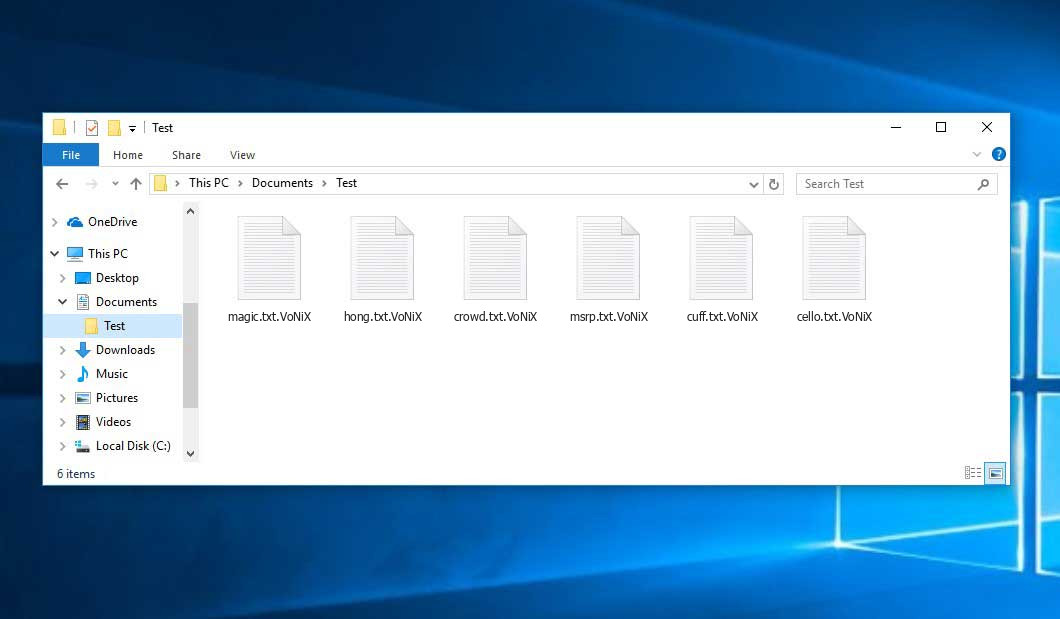The Vonix virus belongs to the Xorist ransomware family. Malware of such sort encrypts all the data on your PC (images, documents, excel sheets, audio files, videos, etc) and adds its own extension to every file, leaving the HOW TO DECRYPT FILES.txt files in each folder which contains the encrypted files.
What is known about the Vonixvirus?
☝️ A scientifically accurate designation for the Vonix would be “a Xorist family ransomware infection”.
Vonix adds its own .VoNiX extension to every file’s name. For example, a file named “photo.jpg” will be altered to “photo.jpg.VoNiX”. In the same manner, the Excel file named “table.xlsx” will be renamed to “table.xlsx.VoNiX”, and so forth.
In every folder with the encoded files, a HOW TO DECRYPT FILES.txt text file will appear. It is a ransom money note. Therein you can find information on the ways of paying the ransom and some other remarks. The ransom note most probably contains instructions on how to purchase the decryption tool from the tamperers. That is it.
Vonix abstract:
| Name | Vonix Virus |
| Ransomware family1 | Xorist ransomware |
| Extension | .VoNiX |
| Ransomware note | HOW TO DECRYPT FILES.txt |
| Detection | Trojan:Win32/Smokeloader.GHN!MTB, Trojan:Win32/RedLine.LD!MTB, Ransom:MSIL/TankixCrypt.PA!MTB |
| Symptoms | Your files (photos, videos, documents) get a .VoNiX extension and you can’t open them. |
| Fix Tool | See If Your System Has Been Affected by Vonix virus |
In the image below, you can see what a folder with files encrypted by the Vonix looks like. Each filename has the “.VoNiX” extension appended to it.
How did my computer get infected with Vonix ransomware?
There is a huge number of possible ways of ransomware infiltration.
There are currently three most exploited methods for criminals to have the Vonix virus working in your digital environment. These are email spam, Trojan infiltration and peer networks.
If you open your inbox and see emails that look just like notifications from utility services companies, postal agencies like FedEx, web-access providers, and whatnot, but whose “from” field is unknown to you, beware of opening those letters. They are very likely to have a harmful item enclosed in them. Therefore, it is even riskier to open any attachments that come with emails like these.
Another option for ransom hunters is a Trojan file model. A Trojan is an object that infiltrates into your PC disguised as something legal. For example, you download an installer of some program you want or an update for some program. But what is unpacked turns out to be a harmful program that compromises your data. As the installation file can have any title and any icon, you have to make sure that you can trust the source of the things you’re downloading. The best way is to use the software companies’ official websites.
As for the peer-to-peer file transfer protocols like torrent trackers or eMule, the danger is that they are even more trust-based than the rest of the Internet. You can never know what you download until you get it. So you’d better be using trustworthy websites. Also, it is a good idea to scan the directory containing the downloaded files with the antivirus as soon as the downloading is done.
How do I get rid of the Vonix virus?
It is crucial to note that besides encrypting your data, the Vonix virus will most likely deploy Vidar Stealer on your machine to get access to credentials to different accounts (including cryptocurrency wallets). The mentioned program can derive your logins and passwords from your browser’s auto-filling cardfile.
Often criminals would decode some of your files to prove that they indeed have the decryption tool. Since Vonix virus is a relatively recent ransomware, anti-malware designers have not yet found a way to reverse its work. Nevertheless, the decryption instruments are frequently updated, so the effective countermeasure may soon arrive.
Understandably, if the tamperers succeed in encrypting victim’s critical data, the desperate person will most likely fulfill their demands. Nevertheless, paying to criminals does not necessarily mean that you’re getting your blocked information back. It is still risky. After receiving the ransom, the racketeers may send a wrong decryption key to the injured party. There were reports about ransomware developers simply disappearing after getting the money without even writing back.
The best countermeasure to ransomware is to have a system restore point or the copies of your essential files in the cloud storage or at least on an external disk. Obviously, that might be not enough. The most crucial thing could be that one you were working on when it all started. But at least it is something. It is also advisable to scan your drives with the anti-malware utility after the OS restoration.
There are other ransomware products, besides Vonix, that work similarly. Examples of those are Nifr, Boty, Niwm, and some others. The two major differences between them and the Vonix are the ransom amount and the encoding method. The rest is almost identical: documents become encoded, their extensions altered, ransom notes are created in each folder containing encoded files.
Some fortunate users were able to decode the blocked files with the aid of the free tools provided by anti-ransomware developers. Sometimes the criminals accidentally send the decoding code to the wronged in the ransom readme. Such an extraordinary fail allows the user to restore the files. But of course, one should never rely on such a chance. Remember, ransomware is a criminals’ technology to pull the money out of their victims.
How do I avoid ransomware infection?
Vonix ransomware has no superpower, neither does any similar malware.
You can defend your PC from ransomware injection taking several easy steps:
- Ignore any letters from unknown senders with unknown addresses, or with content that has likely no connection to something you are expecting (how can you win in a money prize draw without participating in it?). If the email subject is more or less something you are expecting, check all elements of the suspicious email with caution. A fake email will always contain a mistake.
- Do not use cracked or unknown software. Trojans are often spreaded as an element of cracked products, possibly as a “patch” preventing the license check. But dubious programs are very hard to tell from trustworthy ones, because trojans sometimes have the functionality you need. You can try to find information on this software product on the anti-malware forums, but the best way is not to use such programs at all.
- And to be sure about the safety of the files you downloaded, check them with GridinSoft Anti-Malware. This software will be a perfect defense for your personal computer.
Reasons why I would recommend GridinSoft2
There is no better way to recognize, remove and prevent ransomware than to use an anti-malware software from GridinSoft3.
Download Removal Tool.
You can download GridinSoft Anti-Malware by clicking the button below:
Run the setup file.
When setup file has finished downloading, double-click on the setup-antimalware-fix.exe file to install GridinSoft Anti-Malware on your system.
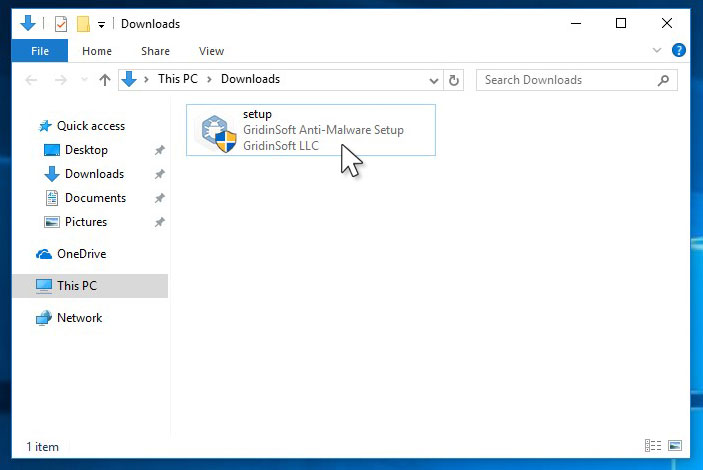
An User Account Control asking you about to allow GridinSoft Anti-Malware to make changes to your device. So, you should click “Yes” to continue with the installation.
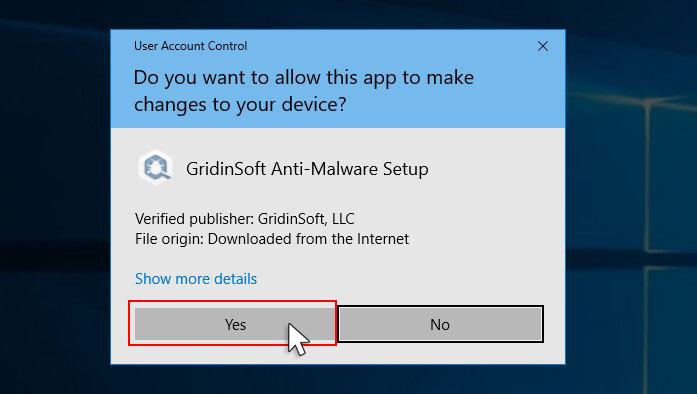
Press “Install” button.
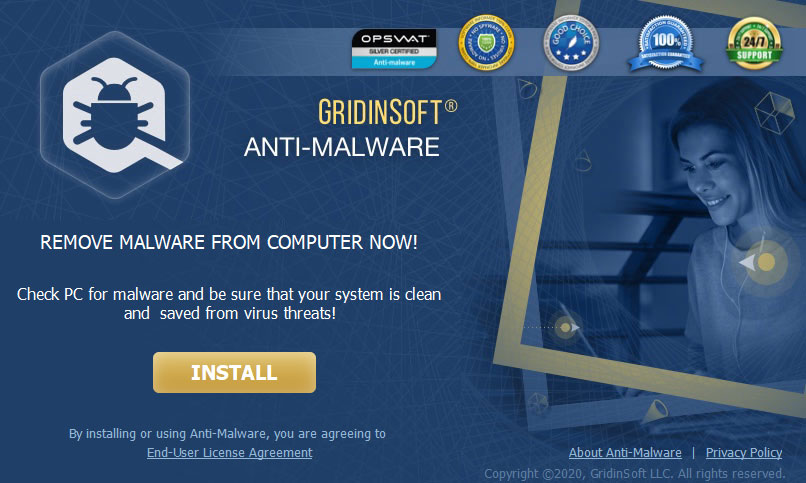
Once installed, Anti-Malware will automatically run.
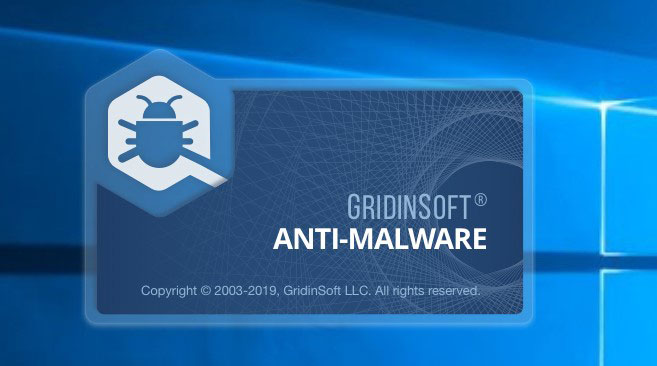
Wait for the Anti-Malware scan to complete.
GridinSoft Anti-Malware will automatically start scanning your system for Vonix infections and other malicious programs. This process can take a 20-30 minutes, so I suggest you periodically check on the status of the scan process.
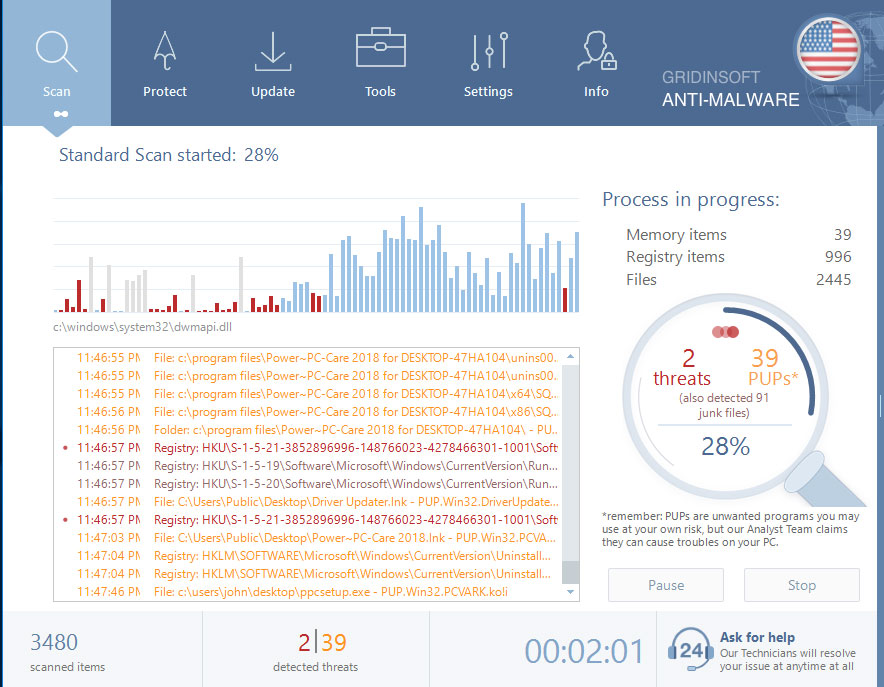
Click on “Clean Now”.
When the scan has finished, you will see the list of infections that GridinSoft Anti-Malware has detected. To remove them click on the “Clean Now” button in right corner.
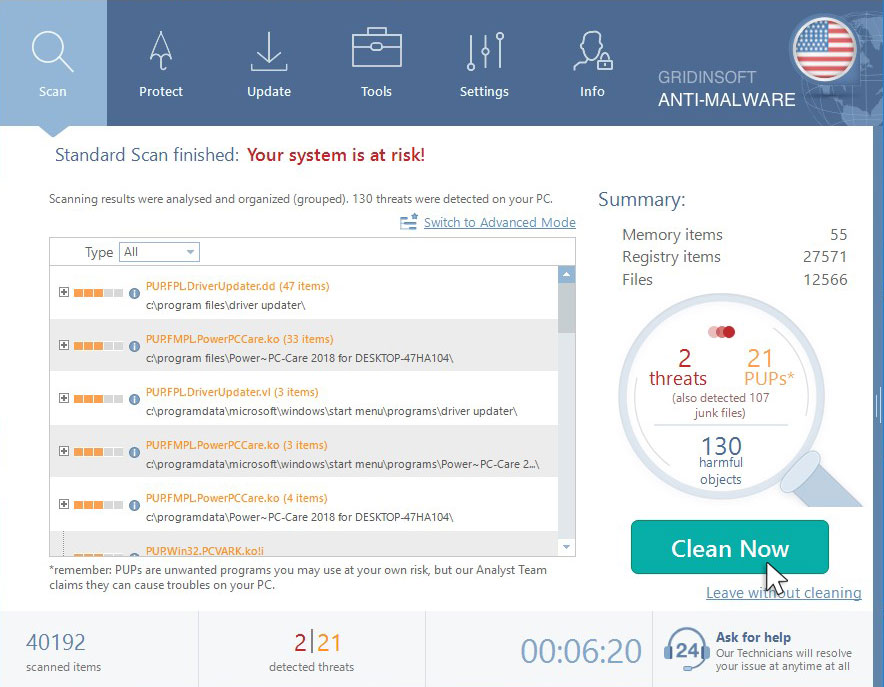
FAQ
🤔 How can I open “.VoNiX” files?Can I somehow access “.VoNiX” files?
Negative. That is why ransomware is so frustrating. Until you decode the “.VoNiX” files you will not be able to access them.
🤔 The encrypted files are very important to me. How can I decrypt them quickly?
Hopefully, you have made a copy of those important files. In case you haven’t, there is still a chance that you do have a Restore Point from some time ago to roll back the whole system to the moment when it had no virus yet, but already had your files. There are other ways to beat ransomware, but they take time.
🤔 If GridinSoft deletes the Vonix malware, will it also delete my files that were encrypted?
Absolutely not! Unlike the ransomware program itself, the encrypted files do not jeopardize your system.
GridinSoft Anti-Malware only deals with active threats. The ransomware that has infected your device is must be still active and running scans from time to time to encode any new files you might create on your PC after the attack. As it has been said above, the Vonix virus comes with the company. It installs backdoors and keyloggers that can steal your account credentials and provide criminals with easy access to your system after some time.
🤔 What actions should I take if the Vonix virus has blocked my PC and I can’t get the activation key.
In such a case, you need to prepare a memory stick with a pre-installed Trojan Killer. Use Safe Mode to do the cleaning. The point is that the ransomware runs automatically as the system boots and encrypts any new files created or brought into your system. To suppress this process – use Safe Mode, which allows only the vital programs to run automatically. Consider reading our manual on running Windows in Safe Mode.
🤔 What can I do right now?
Many of the blocked files might still be at your disposal
- If you exchanged your important files via email, you could still download them from your online mail server.
- You may have shared images or videos with your friends or family members. Just ask them to give those images back to you.
- If you have initially downloaded any of your files from the Web, you can try doing it again.
- Your messengers, social networks pages, and cloud disks might have all those files too.
- Maybe you still have the needed files on your old computer, a notebook, mobile, memory stick, etc.
USEFUL TIP: You can employ data recovery programs4 to get your lost data back since ransomware encodes the copies of your files, removing the authentic ones. In the video below, you can see how to recover your files with PhotoRec, but remember: you won’t be able to do it before you eradicate the virus with an antivirus program.
Also, you can contact the following governmental fraud and scam sites to report this attack:
- In the United States: On Guard Online;
- In Canada: Canadian Anti-Fraud Centre;
- In the United Kingdom: Action Fraud;
- In Australia: SCAMwatch;
- In New Zealand: Consumer Affairs Scams;
- In France: Agence nationale de la sécurité des systèmes d’information;
- In Germany: Bundesamt für Sicherheit in der Informationstechnik;
- In Ireland: An Garda Síochána;
To report the attack, you can contact local executive boards. For instance, if you live in USA, you can have a talk with FBI Local field office, IC3 or Secret Service.
I need your help to share this article.
It is your turn to help other people. I have written this guide to help users like you. You can use the buttons below to share this on your favorite social media Facebook, Twitter, or Reddit.
Brendan SmithHow to Remove VONIX Ransomware & Recover PC
Name: VONIX Virus
Description: VONIX Virus is a ransomware-type infections. This virus encrypts important personal files (video, photos, documents). The encrypted files can be tracked by a specific .VoNiX extension. So, you can't use them at all.
Operating System: Windows
Application Category: Virus
User Review
( votes)References
- My files are encrypted by ransomware, what should I do now?
- GridinSoft Anti-Malware Review from HowToFix site: https://howtofix.guide/gridinsoft-anti-malware/
- More information about GridinSoft products: https://gridinsoft.com/comparison
- Here’s the list of Top 10 Data Recovery Software Of 2023.


